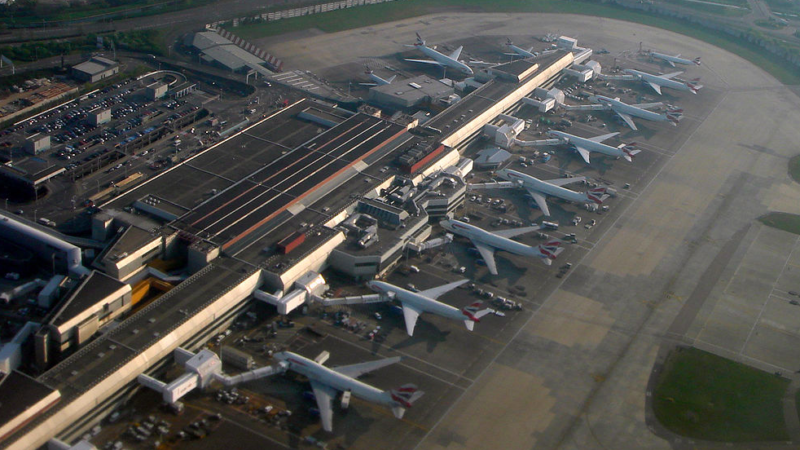Growth in aviation passenger numbers is dropping and costs to airlines increasing. Now's the time the up the campaign against Heathrow expansion.

The collapse of Monarch is not an isolated case. Aviation demand in Britain is dropping. It’s time to put the brakes on expensive and environmentally catastrophic airport expansion, argues Dan Chester.
In the early hours of this morning, Monarch – the UK’s fifth largest airline – was placed into administration, cancelling hundreds of thousands of bookings and leaving 110,000 customers stranded overseas.
The news comes in the midst of a tough few weeks for the UK aviation industry, with Ryanair in near constant public meltdown over their own mass cancellations.
Monarch, according to commentators, has been hit by a perfect storm of obstacles, with a collapse in demand for Monarch’s traditional routes to Turkey, Egypt and Tunisia, unsustainably cheap fares to routes in the Mediterranean, and ever-increasing fuel costs and handling fees due to the fall in the pound.
After concerns about terrorism led to fewer travellers on some of Monarch’s most profitable routes to Turkey and north Africa, the airline had been relying on cheap short-haul leisure routes with stiff competition.
Evidently, Monarch were not able to sustain profit-making against this backdrop of rising costs and dropping demand.
But, perfect storm though it may be, many of these problems are far from unique to Monarch.
Research shows that the weaker pound and uncertainty over Brexit is likely to halve airport passenger growth over the next two years, and ‘staycations’ within the UK are on the up.
The Ryanair crisis, meanwhile, is only hurting the sector further. With bad publicity seemingly omnipresent on the front page of the newspapers of late, the reputation of low cost airlines is being eroded to be point where the entire future of the cheap flights boom is being put in doubt altogether.
The growth predictions that were made to justify the need for airport expansion, therefore, are gradually being undermined.
Far from surging beyond supply, Monarch’s demise may be a sign of things to come for the aviation industry in a post-Brexit world.
Falling demand, rising costs, increasing uncertainty — in this context, the case a third runway at Heathrow seems weak. This £17.6bn infrastructure gamble seems hugely illogical.
We already know a new runway would mean waving goodbye to any chance of the UK meeting its climate change targets and its commitments under the Paris Agreement, which was already unlikely.
Furthermore, the vast sums of money the government is willing to shell out on airport expansion could be used better. Nine of Heathrow’s top ten destinations are short-haul, and can adequately be served by rail instead.
Investment in rail infrastructure is considerably less risky, provides greater public benefit, would benefit a wider range of society — just 15% of the population take 70% of international flights — and would leave adequate airport capacity for harder to reach destinations.
But with party conference season well underway and much of the funding for them coming from aviation interests, lobbyists will be in the ear of politicians more than ever preaching a different reality, one in which airlines are in their heyday yet again.
Monarch’s collapse may just be the wake up call they need that we are past peak airline demand, and in this new context airport expansion is well and truly illogical.
Dan Chester writes on environmental and transport policy. He tweets here.




2 Responses to “Monarch’s collapse is due to a wider drop in demand — just another reason to halt airport expansion”
patrick newman
I dont see much evidence of falling demand for air travel. Nor do the airlines nor the airports. The point about Monarch is this is a failing of little regulated private enterprise which has ruined hundreds of thousands of holiday makers. How the Tory conference can wax lyrical about capitalism and free enterprise in the midst of one of the biggest travel companies collapse is astonishing. There should be a proper forensic investigation and prosecutions of those whose clearly allowed the company to fall off a cash cliff by keeping the state of the company secret. The directors should not be allowed near a public company board room for a very long time.
Richard Jenking
According to BBC “[monarch] had been carrying 14% more passengers than last year – but for £100m less revenue.” We have to make our argument based on facts not try to invent facts to suit our argument.
We need to change the regulation so that failed airlines can continue to trade for 2 weeks once placed in bankruptcy so getting people homes doesn’t become ‘the biggest peacetime evacuation’.